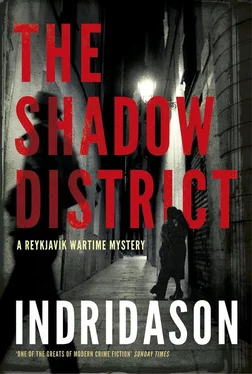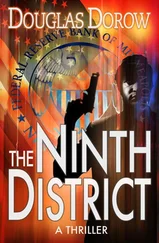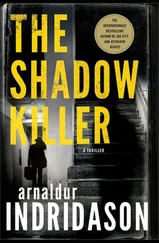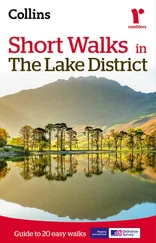‘But what?’
‘Maybe there was more to it.’
‘What do you mean?’
‘I don’t know,’ said Eygló. ‘I’m completely in the dark, I’m afraid. All I know is that my father wasn’t well, obviously. No one in their right mind would resort to an act like that.’
She sat there for a while, lost in the sad memories Konrád had stirred up, then abruptly pushed back her chair and rose to her feet, saying she had to get going.
‘Sorry I couldn’t help you at all,’ she added.
‘Thanks for meeting me anyway,’ said Konrád, rising to his feet as well and shaking her hand again. This time the contact was fleeting and she avoided his gaze.
‘I hope I haven’t made you uncomfortable,’ he said. ‘It really wasn’t the intention.’
‘No, it... no, not at all,’ said Eygló.
He could tell that she had noticed his withered arm during their conversation and was trying not to stare at it. ‘I’ve got to be somewhere else,’ she added, and hurried out of the cafe.
Konrád sat down again, stroking his arm absently and turning over her words in his mind, thinking about the way she’d talked about his father. It didn’t surprise him. He’d heard similar sentiments before and knew from experience — from his own childhood memories — how unreasonable and violent his old man could be. Konrád’s mother had tried repeatedly to bring her ex-husband to his senses and persuade him to allow their son to come and live with her, but it was no good. On one occasion he had refused to let her in to speak to Konrád and left her standing in the basement doorway. Usually when she came to town from her new home in the east she would stop by and spend some time with Konrád. Sometimes she would start crying and begging his father not to drive them any further apart. But on this occasion his father had had enough.
‘At least let me say goodbye to him,’ she had pleaded, trying to catch a glimpse of her son.
‘Oh, shut the fuck up,’ his father had said and slammed the door in her face.
A little online sleuthing soon revealed when the member of parliament and his wife had died, and the fact that they had been survived by several children and grandchildren. No wonder their names had sounded familiar. When Konrád looked them up he remembered that one of the sons had been an influential politician, a cabinet minister, and a leading light in Icelandic society. Of the MP’s four sons and one daughter, only two of the sons were still alive. One had died in his early sixties. Checking the obituaries, Konrád saw that he had passed away suddenly at home. A weak heart was mentioned. The other brother and the sister, however, had lived to a ripe old age. Their descendants were scattered all over the country and as far afield as Britain and Australia.
Konrád decided his first move should be to visit the younger surviving brother, who lived in sheltered accommodation in the little town of Borgarnes on the west coast. He was in the mood for a trip out of town, so the day after his visit to Vigga he got in his car and headed north. The drive took him almost two hours, as he decided to give the tunnel a miss and take the longer, more scenic route around Hvalfjördur. It was a beautiful day, and because most people now used the tunnel he had the road largely to himself. There wasn’t a breath of wind and the fjord lay smooth as a mirror. On a whim, Konrád turned off by the old wartime barracks that still stood above the Thyrill Service Station, which was a shadow of its former self now that traffic around the fjord had dwindled to a trickle.
The old barracks had been painted red and lovingly restored; Konrád had read recently that some were used as summer holiday homes by employees of the nearby whaling station. He drove slowly through the little colony, trying to picture how the area would have looked during the war when there were far more huts and the whole place was alive with activity, iron-grey warships lying at anchor in the fjord. Now silence reigned, broken only by the occasional roar of a passing car. A lone gull was floating on the wind above the old whaling station, as if hunting for the long-lost days of prosperity.
He reached Borgarnes just after midday, quickly located the retirement flats, continued on down the hill and parked outside. The man’s name was on the entryphone in the lobby. Konrád had given no advance warning of his visit, so he had no idea if the man would be home. After waiting for a decent interval, he pressed the bell again but no one answered. Then he rang the bell of what he assumed was the flat next door and a woman picked up. She said she hadn’t seen her neighbour that morning but he often went swimming at lunchtime. Konrád thanked her, returned to his car and drove over to the pool.
He had always liked Borgarnes, a friendly little town with a pretty church, perched on a strip of land surrounded by the sea and set against a dramatic backdrop of mountains. It was of historic interest too, as the area featured heavily in the medieval sagas. The only thing that spoiled it for him was the constant stream of tourists pouring into the snack bars and cafes, since Borgarnes was one of the main rest stops on the routes heading north and west.
None of the swimmers leaving the pool looked the right age to be the man he was after, so he cruised back down the main street. There his hopes were raised when he spotted an elderly man emerging from the local shopping centre with a plastic bag from the state off-licence in one hand and a small sports bag in the other. But they were dashed again when the man climbed straight into a car with a woman at the wheel and they drove away, heading out of town.
Konrád swung by the retirement flats again, tried the bell in the lobby and this time heard a sharp crackling over the entryphone.
‘Yes?’ blared a voice.
‘Is that Magnús’s flat?’
‘Yes, this is Magnús.’
‘Ah, my name’s Konrád and I’d like a brief word if that’s OK. It’s about your parents.’
‘My parents?’
There was a long pause, then the door to the lift area buzzed. When Konrád reached the second floor, Magnús was waiting for him outside his flat. They shook hands and Magnús invited him in, explaining that he had just come home from a swim. Konrád pretended this was the first he had heard of it.
‘How did you know my parents?’ the man asked, closing the door behind them and showing Konrád into the sitting room. ‘Are you one of those genealogists?’
The flat was compact, with an open-plan kitchen and sitting room, a small bedroom, and a fine panorama over the fjord and Mount Hafnarfjall. Its owner, Magnús, appeared to be in good physical shape for his age. He was of average height, straight-backed and sprightly, his head completely bald and his face round. No doubt the swimming kept him fit.
‘No, actually,’ Konrád said, ‘I’m not into genealogy. But I do have an interest in old criminal cases and—’
‘Criminal cases?’ interrupted Magnús.
‘That’s right. One of the cases I’ve been looking into recently dates back to the Second World War.’
‘Really? And that’s why you’re here?’
‘Yes.’
‘Which case?’
‘A young woman who worked as a seamstress was found strangled behind the National Theatre in 1944. Her name was Rósamunda. I should think plenty of older people from Reykjavík would remember the incident.’
‘It does sound vaguely familiar,’ said the man, frowning slightly.
‘May I ask if you’ve received another visitor recently — he’d have come from Reykjavík like me — a man called Stefán?’
‘Stefán? No.’
‘He used to go by the name of Thorson; he was from the Icelandic settlement in Canada.’
Читать дальше












